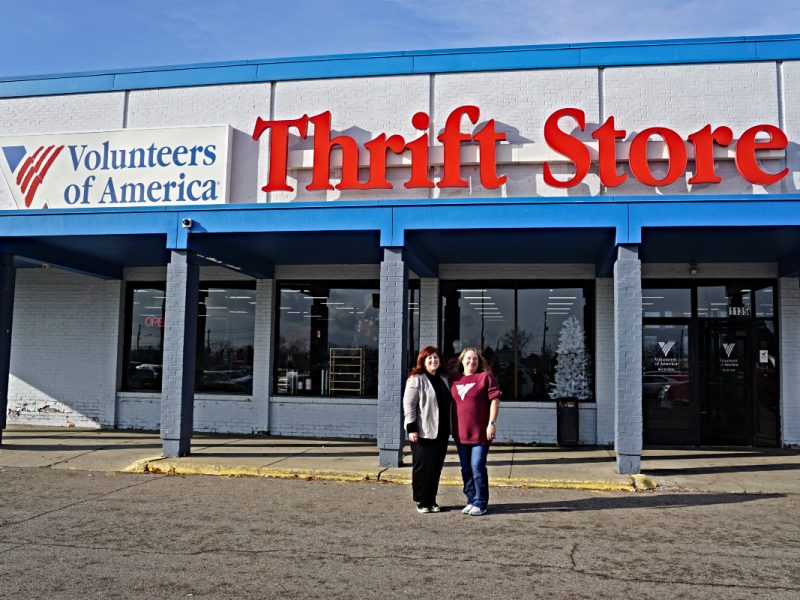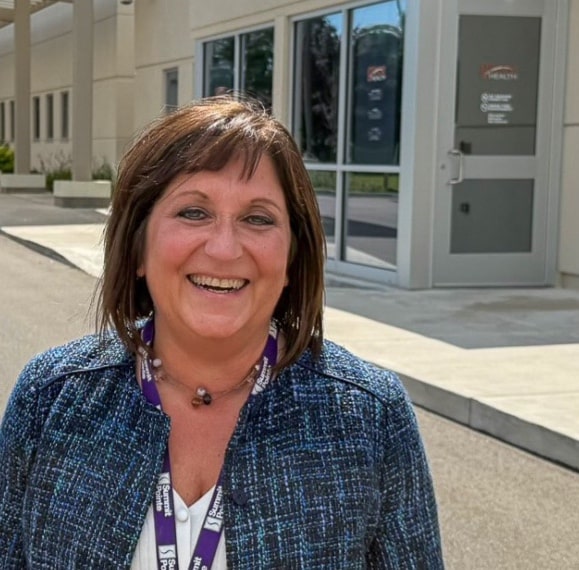Partner Partner Content How edible schoolyards in Lansing help feed the community
An afterschool gardening club at three Lansing-area elementary schools helps kids learn how food gets from their own school gardens to their table – and how to improve their community's overall food security.
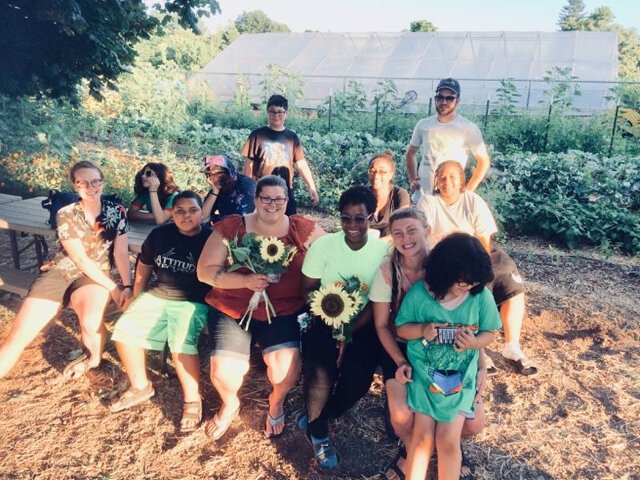
This article is part of Stories of Change, a series of inspirational articles of the people who deliver evidence-based programs and strategies that empower communities to eat healthy and move more. It is made possible with funding from Michigan Fitness Foundation.
Editor’s note: Due to closures because of COVID-19, educators are moving SNAP-Ed programming to alternative learning platforms.
When 6-year-old Dylan Sisco came home from Lansing’s Riddle Elementary School gushing about an afterschool garden club, her mother, Wendy Sisco, took notice.
“She said, ‘Mom, I really want to do this,’” Wendy Sisco says. “She got really excited about it because she loves to cook. I love to cook, too. I knew it was important to her.”
Offered through the Lansing-based NorthWest Initiative‘s (NWI) Food Systems Project, the afterschool club meets weekly at Riddle and two other Lansing-area elementary schools to help kids learn how food gets from their own school gardens to their table. The program, which uses a curriculum called Growing Healthy Habits, is funded in part by Supplemental Nutrition Assistance Program Education (SNAP-Ed) grants from Michigan Fitness Foundation (MFF). SNAP-Ed is an education program of the U.S. Department of Agriculture that teaches people eligible for SNAP how to live healthier lives. As a State Implementing Agency for the Michigan Department of Health and Human Services, MFF offers competitive grant funding for local and regional organizations to conduct SNAP-Ed programming throughout Michigan.
Dylan Sisco was one of the first students to participate in the program, which is now about a decade old. She fell in love with the club, and so did Dylan’s younger sister, Allison, when she was old enough to attend school herself. As a parent and PTO member at Riddle for about 10 years, Wendy Sisco says she watched the “program blossom and the garden grow.”
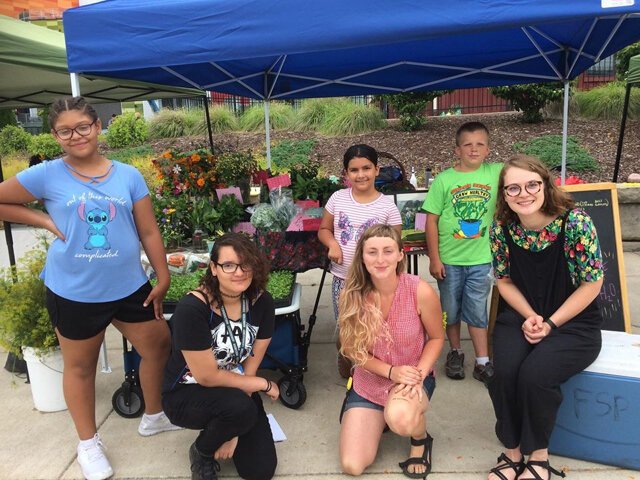
The afterschool and summer garden clubs are part of an initiative that started with a SNAP-Ed-funded, classroom-based world food and cooking program called Cooking With Kids. Using the evidence-based curriculum developed in New Mexico, NWI educators armed with unique lesson plans wheel mobile cooking carts into 50 classrooms each month at Riddle Elementary, Sheridan Road STEM, Willow Elementary, and Gier Park School.
“The curriculum focuses on foods from around the world,” says Aliza Ghaffari, operations manager for NWI’s Food Systems Project. “Each session is devoted to a different part of the world, and the students learn about the culture, cuisine, and edible plants that grow there. Then we break up into cooking groups and prepare delicious recipes that we sample together.”
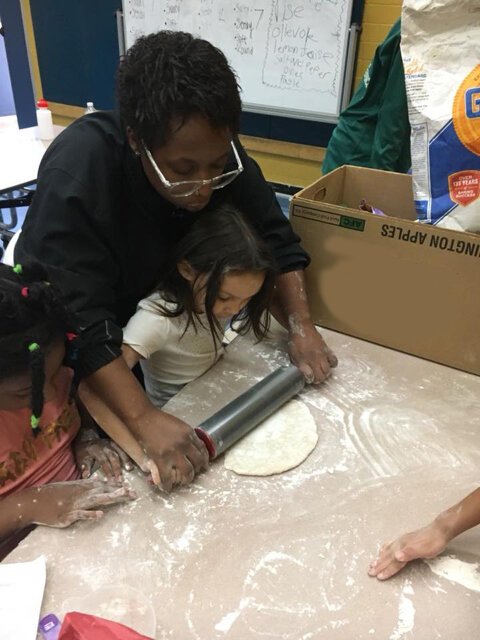
Ethiopia, Mexico, India, and eastern Europe are among the cooking destinations students explore. When they learn about India, they discuss vegetarianism and alternative seasonings, listen to regional music, and get up to move and dance. They also learn dining-related phrases and words from the languages of the region.
“We are weaving nutrition education into social studies and engagement with the region and the culture,” Ghaffari says. “We talk about spices that can be used as alternatives to salt, for example. We may discuss the value of legumes and make a lentil dish to try.”
As well as building positive fruit and vegetable experiences, Ghaffari says Cooking With Kids boosts health-related messages that can filter into other academic subjects. “This program brings the conversation about healthy food and cooking into the culture of the school building,” she says.
Both Cooking With Kids and NWI’s afterschool and summer gardening programs are part of a variety of NWI food-based initiatives that uncovered the community’s desire for access to more fruits and vegetables, places to grow them, and knowledge about how to best enjoy them in meals.
“The summer programs were developed to provide students and families with a way to bring students back to engage with and help grow their school gardens during the summer,” explains Ghaffari.
The afterschool gardening program gives up to 25 students at Riddle, Sheridan Road STEM, and Willow Elementary weekly garden-to-table exposure, and SNAP-Ed programming provides the nutrition education components. There’s a lot to learn at Riddle Elementary’s large schoolyard garden and passive solar greenhouse, which was established in 2008 and produces thousands of pounds of produce each year.
“There are gardens at each school, but the largest is at Riddle,” Ghaffari says. “Kids really enjoy getting into the garden. Not every kid is interested in cooking but may love bugs and worms and dirt.”
Students learn all aspects of fruit and vegetable gardening, including planting, harvesting, growing seasons, and worm composting. They soak in information about pollinators and how different natural ecosystems work together to produce food.
“They’re teaching the kids where food comes from,” Wendy Sisco says. “It’s not processed and packaged and shelved in a store. There is real work behind making this food, and the club can expose the kids to foods that maybe they are not so sure about trying. Dylan learned that agriculture is a tough business and it’s not easy. She’s artistic and creative, and she has learned that you have to be savvy in your thinking and learn how to make things work.”
Students helping students
Nutrition education through SNAP-Ed programming at the garden club at Riddle has become a school mainstay and has catalyzed other efforts to address other food security issues in the broader community. During the summer harvest season, Riddle opens its gardens weekly to the public.
“At those events, we have volunteer students who run garden tours. We sample seasonal recipes, too,” says Ghaffari. Students create a garden lemonade stand and share fresh lemonade mixed with garden-grown mint. Students harvest vegetables, fruits, and herbs and run a farm stand to sell produce to the community for donations. Now 15, Dylan Sisco is one student who has returned to the garden as an intern to help these programs run smoothly.
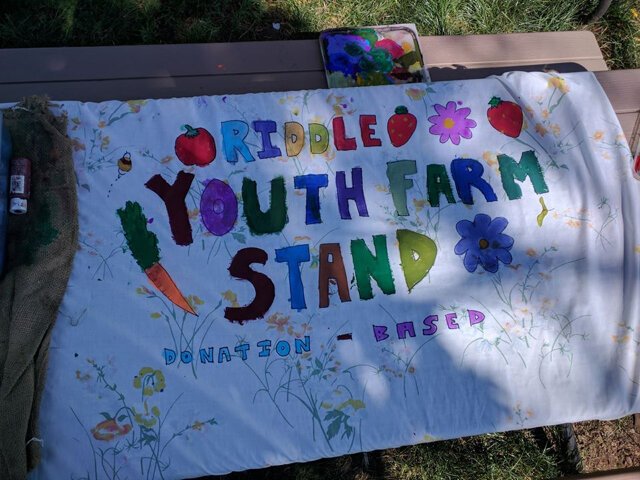
“Students really learn that a local community food system process looks different from our industrial food system,” Ghaffari says. “Our community-based education is focused on helping create opportunities for community members and young people so they can understand what a food system is and participate.”
Addressing broader community needs
As part of SNAP-Ed Policy, Systems and Environmental change work, garden tours and student-run produce stands have revealed a need for increased access to nutritious foods, not just for students and their families, but for seniors and those without transportation. Ghaffari and her colleagues at NWI are working now to creatively address these issues in order to help connect people to food resources.
“As the gardens have grown, our distribution channels have changed to reflect that. Using multiple funding sources, we have created a mobile farmers market with our NWI delivery van going to different locations in Lansing and providing fruits and vegetables to folks in the community. We have an EBT reader in the van and can accept payment options and make food more accessible to the whole community,” says Ghaffari. A “U-pick” policy at the garden means people are welcome to take home what is ready to be harvested.
The SNAP-Ed grant from MFF has served as a vehicle for NWI to learn more about local food access gaps, and NWI is now leveraging various additional grant resources to fund community surveys and focus groups.
“This information gathering has been especially important to help address needs during the COVID-19 pandemic,” says Jane Kramer, Policy, Systems, and Environmental Change coordinator with NWI.
Through SNAP-Ed, Lansing students aren’t just learning how to garden and eat healthier themselves. They’re strengthening the food security of their community as a whole.

